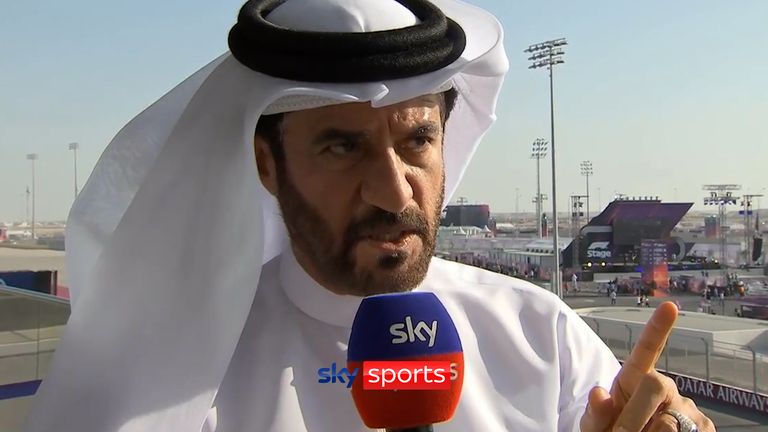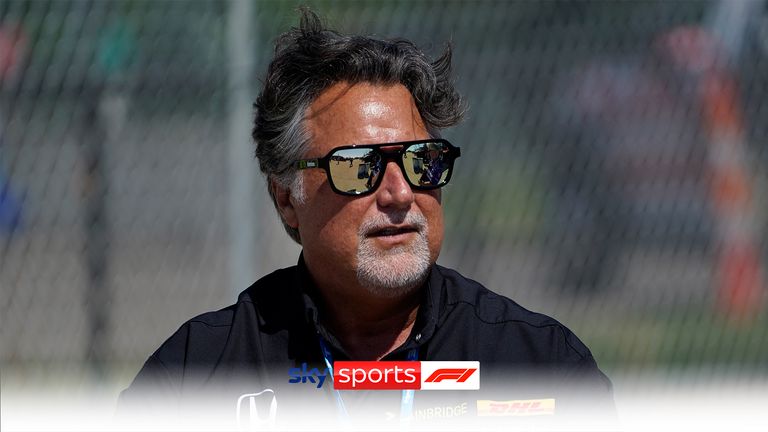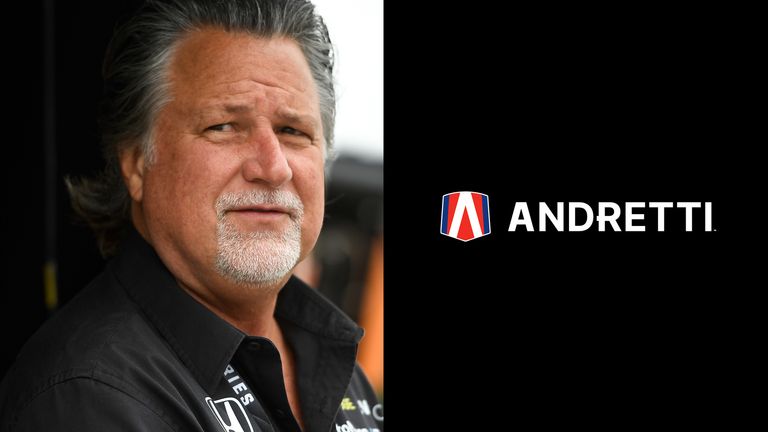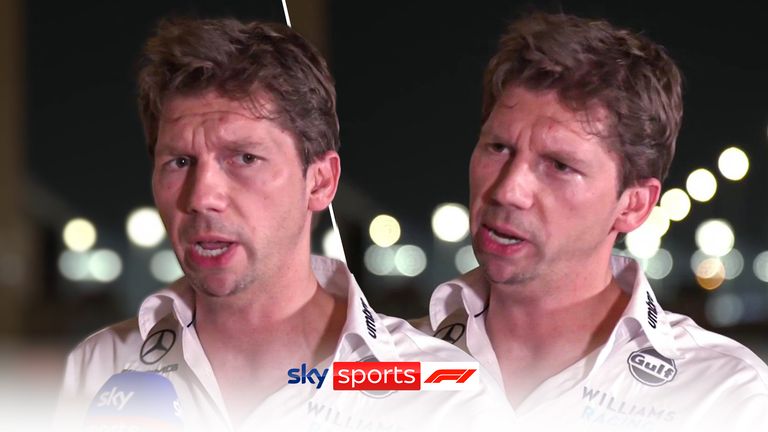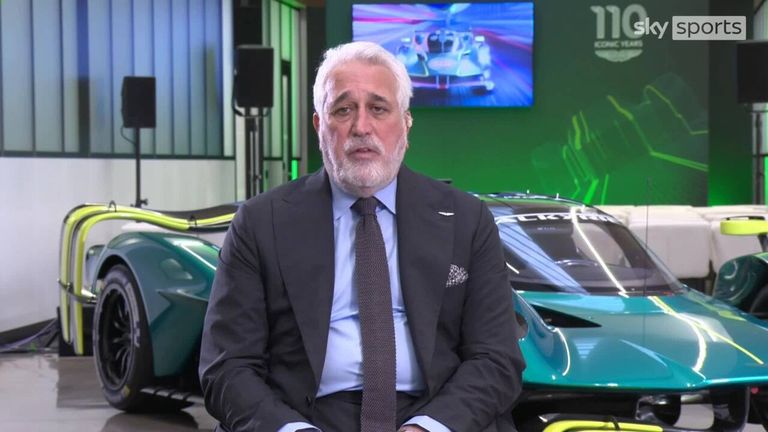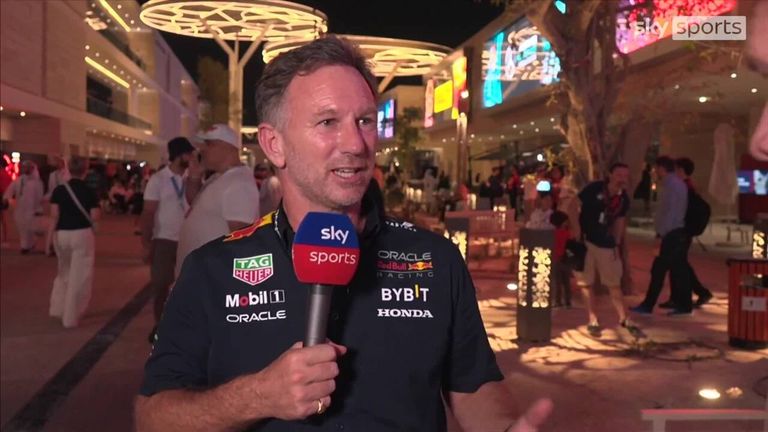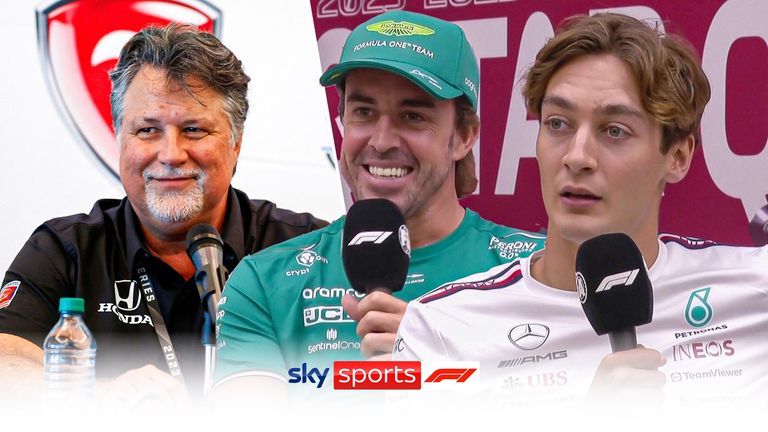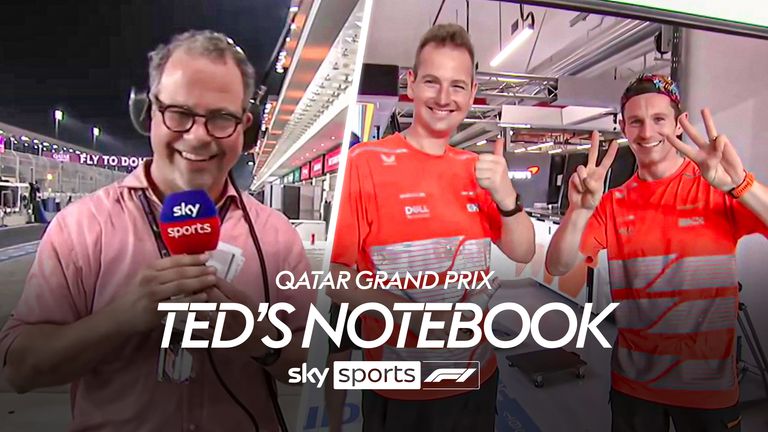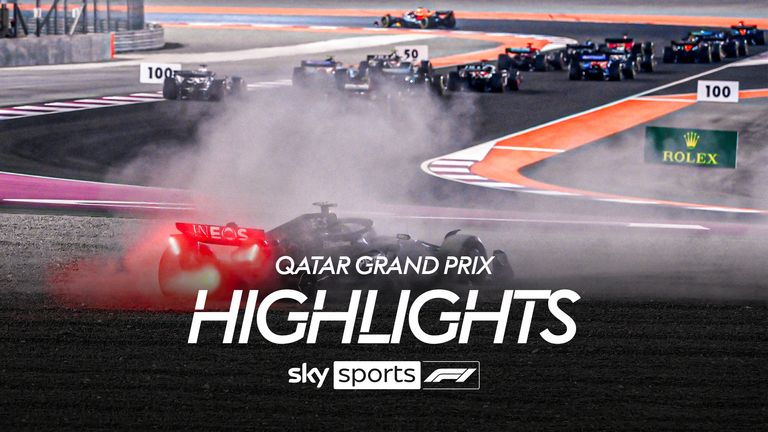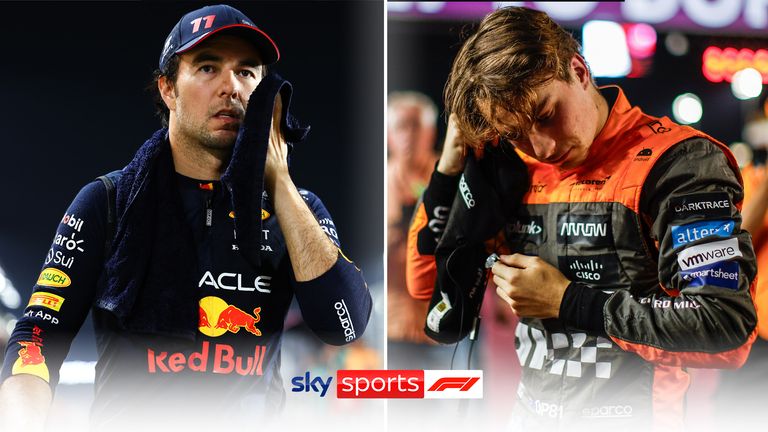
Karun Chandhok
F1 Expert
Andretti bid for F1 entry explained: Karun Chandhok breaks down brewing storm over 11th team
The long read on Formula 1's biggest current off-track story: Andretti's bid to become the grid's 11th team; Sky Sports F1's Karun Chandhok tackles the complex topic from all angles - what's happened so far, what are the different views at play, and how and when might it all get resolved?
Last Updated: 12/10/23 7:01am
The big talking point off the track in Qatar was whether F1 would let Andretti Formula Racing, in partnership with Cadillac, join the grid as a new team in the near future.
The FIA confirmed ahead of the race weekend that Andretti had been given a green light by its due diligence process.
This of course got lots of fans very excited, but I think it's important to try and put a bit more meat on the bone of this subject because, as always in F1, nothing is ever simple.
- FIA president: 'All the confidence' F1 will approve Andretti bid
- Stream every F1 race and more with NOW
- Get Sky Sports | Listen to the Sky Sports F1 Podcast
The F1 entry process explained
Any new team who wants to compete in F1 has to go through a three-phase process.
Phase One is where the FIA invite any new teams to express an interest in entering the championship. On this occasion, there were four teams who did so.
In Phase Two, these teams are assessed on their sporting and technical ability, the ability of the team to raise and maintain sufficient funding to allow participation in the championship at a competitive level and the team's experience and human resources.
Selection criteria also included sustainability management in line with the FIA's ambition of achieving the sport's goals for net-zero by 2030. Any prospective F1 team was also required to illustrate how they intended to achieve a positive societal impact through participation in the sport.
Andretti are the only one of the four teams to progress through Phase Two.
In Phase Three, it's very clear that any new team must secure a commercial agreement with Formula One Management (FOM). In the past, some teams have raced in F1 without a commercial agreement in place, but all this changed from 2022 onwards where it is now very clear that without a commercial agreement, you cannot enter the championship.
This is where the Andretti plan looks like it's going to stall.
What is the FIA's position on an 11th team and Andretti?
The FIA president, Mohammed Ben Sulayem, has been very vocal about wanting to see Andretti on the grid.
His belief is that the FIA is the landlord of the F1 World Championship and that the Liberty Group-owned Formula 1 Management are merely the leaseholders. Therefore, in his mind, the FIA should have ultimate control over who participates.
Technically, the teams pay the entry fees to the FIA and also get an entrant's licence from a national arm of the governing body to compete. However, FOM are clear that they cannot be forced by the FIA into signing a commercial agreement with Andretti.
This is where the political tug of war is brewing.
What's the position of F1 and the existing 10 teams?
FOM's opposition aligns with the majority of the incumbent 10 teams being against Andretti joining the championship as they believe it will hurt them financially.
There are three general brackets under which the teams seem to be unhappy with the potential Andretti entry:
(a) valuation of their teams
(b) dilution of their income from FOM
(c) battling another team for the sponsorship pool coming into F1.
In general, they all seem to be singing from the same hymn sheet by publicly saying that "any new team should only be allowed if they add value to the championship and this is something between FOM and Andretti to work out" whilst privately seething.
The likes of Toto Wolff and Lawrence Stroll have taken a clear public stance against the Andretti project but without going too heavily into the details.
The outlier has been the eloquent James Vowles from Williams, who seemed to be the only team boss this weekend to take the bold step of upsetting the fans by sticking his head above the parapet and outlining in more detail exactly why he and his ultimate owners at Dorilton Capital aren't in support of the Andretti bid.
He raised a very fair point that while the top three teams are now profitable, there are still several others, Williams included, who are losing money and relying on the owners to top up the pot.
Mercedes for example have just published their financials showing a profit of over a $100m in 2022, although about 19 per cent of that included their Applied Science division.
I do have some sympathy for James as Williams are in a unique position in the sense that they don't represent a consumer brand that can justify any losses as marketing costs like Red Bull can for AlphaTauri or Haas Automations can for their F1 team.
This has historically been the case including of course BAR/Honda and Mercedes where James spent the last two decades and the owners were all losing money yet able to justify it as marketing expenditure.
The teams have all been talking about the impact of an extra team will have on their "franchise values". Technically, there is no such thing as a franchise system unlike other sporting leagues - the teams are entrants of an FIA World Championship.
The valuation game is a tricky point to really quantify because in actuality, the Concorde Agreement, which is the commercial agreement between FOM and the teams, provides for the existence of 12 teams. The counter argument being made against the teams is that in terms of valuation, the existing teams should be valued as one of 12 entrants and not 10, so Andretti entering the championship is actually irrelevant.
What's the financial argument being made by teams against expansion?
The point around the pot of income from FOM being diluted is an interesting one.
The exact details of the pot being spread as per the Concorde Agreement is obviously confidential but at the moment it is widely rumoured that about US$ 1.4bn is divided up between the teams.
Of this, we believe about US$ 400m is paid as bonuses to teams who have won Constructors' Championships with the remaining $US 1bn divided up in a sliding scale amongst the 10 teams.
The winning constructor is believed to receive around 14 per cent of this and the team finishing tenth around six per cent.
It seems like the Concorde Agreement allows for an adjustment of this sliding scale from eighth to 12th place, should there be more than 10 teams on the grid.
Therefore if Andretti join the grid, there's no doubt that the existing teams will be negatively affected as the US$ 1bn pie will be divided 11 ways, leaving them poorer by about $5m on average per year (based on the sliding scale where the top team will lose about seven per cent and the bottom about three per cent).
To offset this, under the current Concorde Agreement, there is a figure of $200m set as an "anti-dilution" fee to compensate the existing teams. A bit of simple maths tells you that they will be compensated for four years.
Now whether this number can be increased and by how much remains to be seen but it could be one way to appease the incumbent teams.
You could also look at this situation in reverse and say that the existing teams have effectively been taking in some extra income over and above what the Concorde was designed to do as the pie is only being sliced into ten and not 12 at the moment. From Andretti's perspective, this is the narrative they would want people to consider, I'm sure.
On the point of battling for sponsorship, there is absolutely no doubt that this will have a negative impact on the existing teams and there is no way to fix that. The teams are not only competing against each other but against Football, Cricket, NFL or MLB teams for sponsorship income and if you had another team in the paddock, especially an American one with the Andretti-Cadillac name, that's not ideal for the current paddock residents.
What's the case for an Andretti entry?
Finally, my personal view is that I would like to see Andretti on the grid.
From a neutral sporting perspective, I believe that having two extra cars on the grid is good for the sport, good for the show and good for young drivers coming through the ladder.
I thought it was unfair that a supremely talented driver like Oscar Piastri had to spend a year on the bench as the reigning F2 champion because there weren't enough seats. Likewise, Esteban Ocon, Felipe Drugovich and now Liam Lawson.
There are plenty of people in the paddock who are very quick to discredit the Andretti operation.
All weekend long in Qatar there were lots of lines about "it's not a real GM deal - they're going to badge someone else's engine" or "they're going to be utterly rubbish. They have no idea how hard F1 is compared to what they've been doing", or even "which of the current Netflix generation of fans even know the Andretti name?".
Maybe all these points are true. Maybe these teams will be right and Andretti will fail. Maybe they won't add any value to the championship by bringing in additional income. But unless they actually enter, we won't know the answers.
Maybe the opposite will happen and F1 will have another two cars on the grid for the long term.
Seems a risk worth taking for me.
Imagine if Steve Jobs didn't decide to take the risk of ditching buttons on the iPhone or Elon Musk didn't push forward with Tesla.
Sometimes, the great team leaders need to think of the greater good of the sport. In the late 1960s, Colin Chapman worked with Ford and Cosworth to create the DFV and initially had the exclusive rights to use the engine.
Walter Hayes from Ford and Chapman recognised that the sport on the whole would suffer badly if the Lotus DFV cars dominated everything and the most successful engine in the history of the sport was made available to other teams after a season.
In a similar vein, McLaren waived their right to exclusive Mercedes engines in 2009 to allow Brawn GP to receive the engine supply that carried Jenson Button to the world championship because McLaren realised it would be for the greater good of the sport not to lose the team from the grid.
Mercedes of course bought Brawn at the end of that season and bought out of their part ownership of McLaren.

Karun's final thoughts
The storm clouds are gathering around the F1 and FIA buildings as this situation plays out.
There are so many layers to the dynamics here with F1 providing around 70 per cent of the FIA's income yet the governing body owning the ultimate naming rights to the FIA Formula One World Championship.
A split between the two organisations would be bad for both sides as well as spook investors and stakeholders but can they get their ducks in a row and agree on the Andretti issue?

Time is ticking fast and it already feels too late to have them on the grid for 2025.
With the new Concorde Agreement due to kick in for 2026, perhaps the game is to re-draw the battle lines and compensate the existing teams enough that everyone gains what they need financially and it becomes more expensive for Andretti to come in.
This isn't something that will really get sorted until early next year, but one thing is clear, this will be the biggest battle in Michael Andretti's career as a driver turned team boss.

